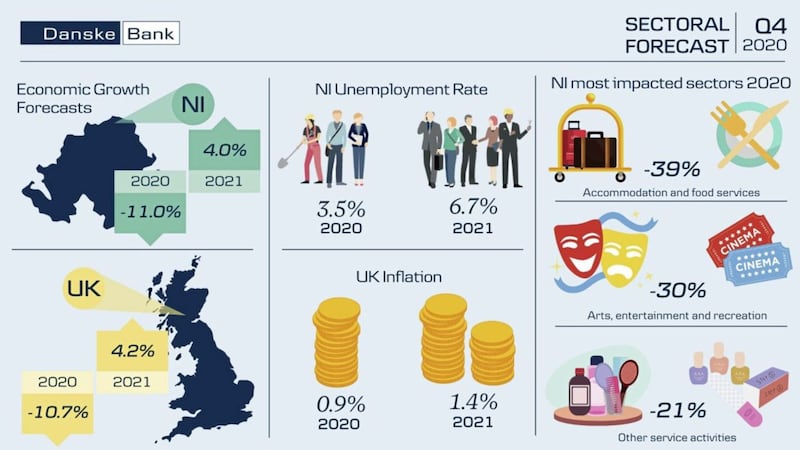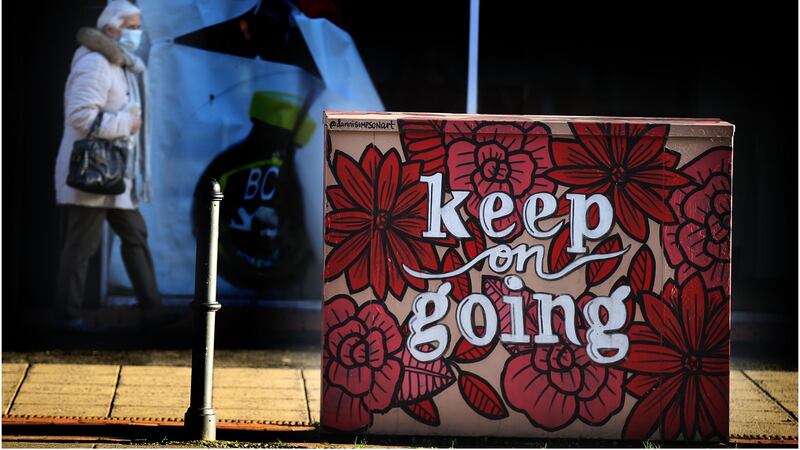IT may be at snail's pace, but the north's economy will recover some of its lost ground by the end of this year, a leading economist is predicting.
But there will be significant collateral damage along the way, with business closures and a doubling of the region's jobless register.
And it could still be "a number of years" before output returns to its pre-coronavirus level.
While Danske Bank's latest quarterly sectoral forecast is the third industry barometer this week to state the obvious around the devastating economic damage caused by the coronavirus pandemic, its authors point to a modest pathway back to growth.
While it suggests the Northern Ireland economy will contract by 11 per cent this year, Danske has revised down its 2021 forecast and now believes it will expand by 4 per cent.
Danske said that while the roll-out of the vaccine programme should see a gradual economic recovery restart in the second quarter, there is still a great deal of uncertainty and risk to the outlook.
The bank's chief economist Conor Lambe said: “Any recovery is likely to have stalled in the fourth quarter of 2020. And with a further six-week period of restrictions coming into effect in late December and expected to be in place until at least the first week of February, the economy will experience a challenging first quarter.
“The vaccine roll-out will hopefully allow restrictions to be gradually eased as we move through 2021, with the economic recovery getting back under way from the second quarter, though we still expect output to be below its pre-coronavirus level in the final quarter of the year.”
He added: “While it is positive that a no trade deal Brexit was avoided, there are trade frictions arising from the agreement and Northern Ireland Protocol. Firms will need time to adapt to these changes, which will act as a drag on the pace of economic growth.”

The report shows that the sectors worst hit this year are those most reliant on close contact between individuals, such as accommodation and food services (it dropped 39 per cent) and arts, entertainment and recreation (down 30 per cent). Assuming restrictions begin to be gradually lifted, both will bounce back with double-digit growth.
Danske suggests the wholesale and retail trade sector will experience an annual increase in output of around 3.5 per cent in 2021 while manufacturing and construction should grow by around 5 per cent and 5.7 per cent respectively.
In its labour market forecasts, Danske predicts the average number of employee jobs will fall by 3 per cent in 2021, following a projected decline of 0.3 per cent in 2020.
It expects the unemployment rate to increase to an annual average of 6.7 per cent in 2021, reaching a peak of around 7 per cent in the second quarter of this year.
Worst hit will be accommodation and food services (down 7.6 per cent), and arts, entertainment and recreation (down 7.3 per cent). The manufacturing sector is expected to experience job losses in both 2020 and 2021.





